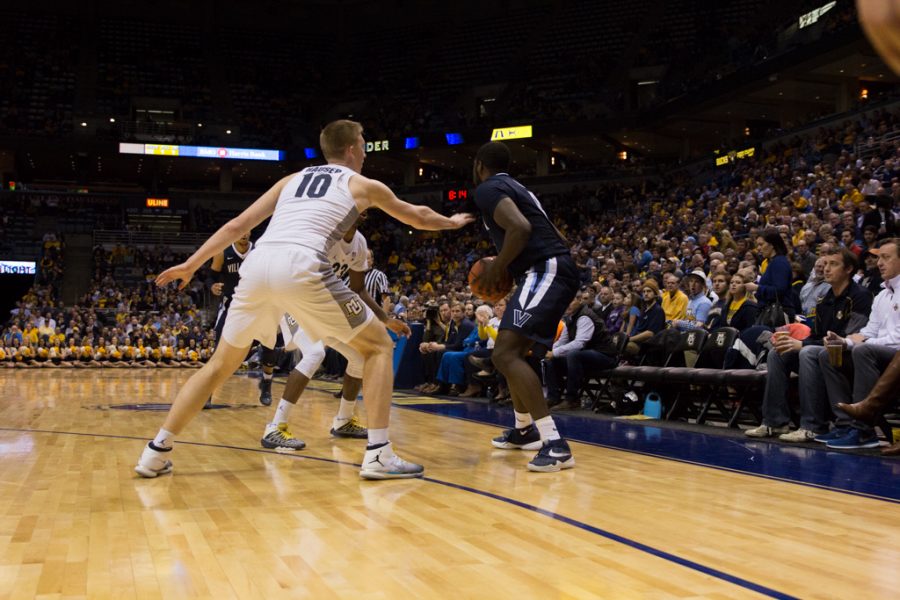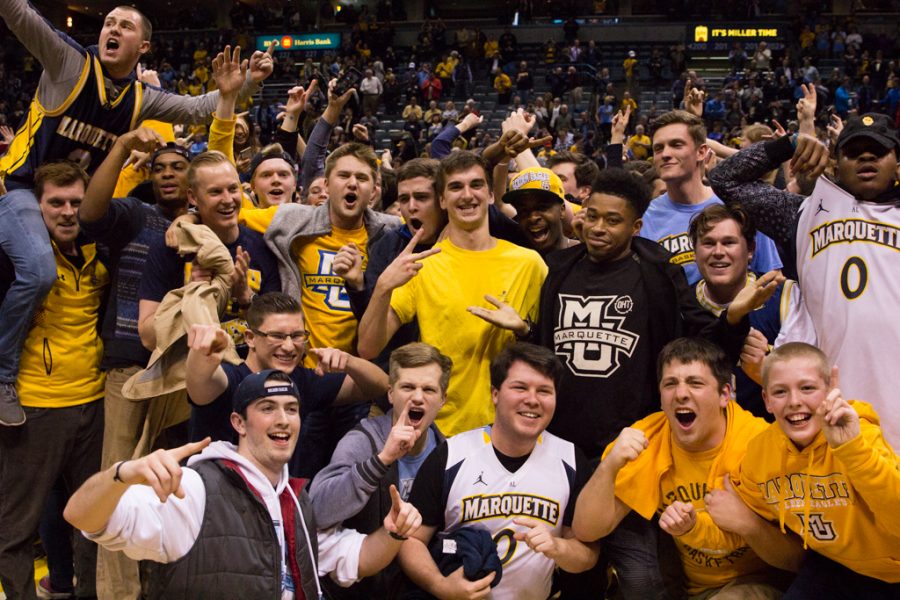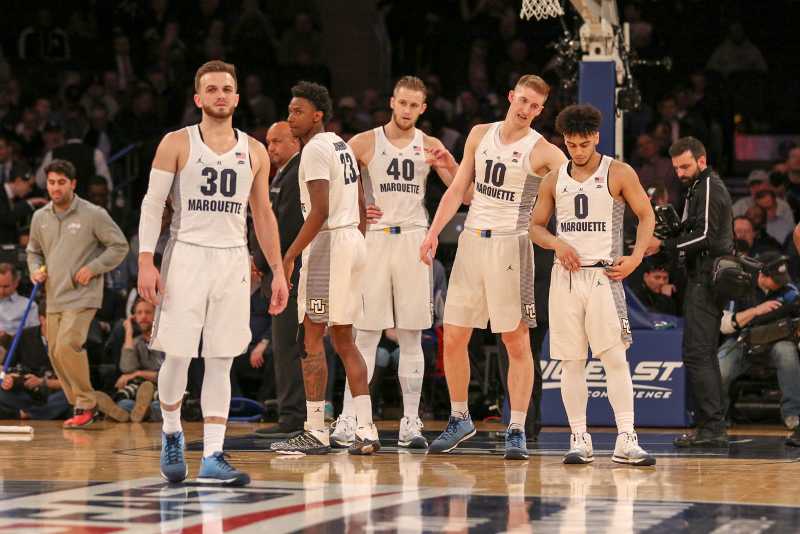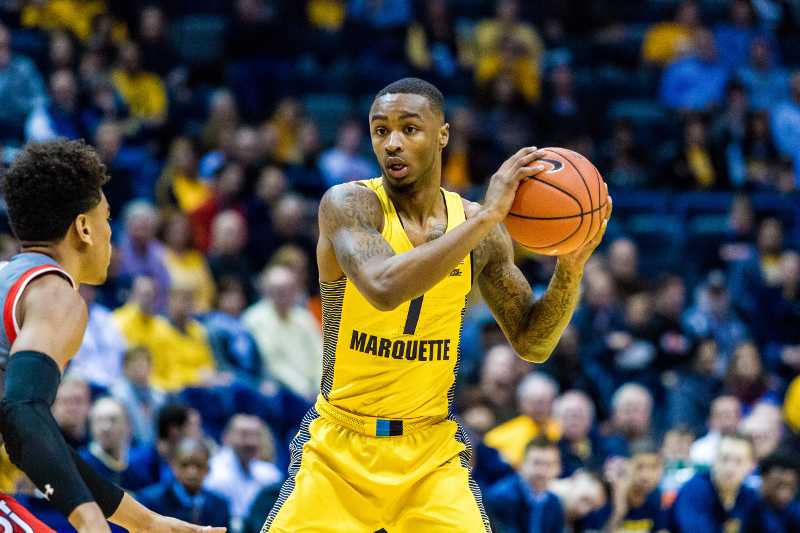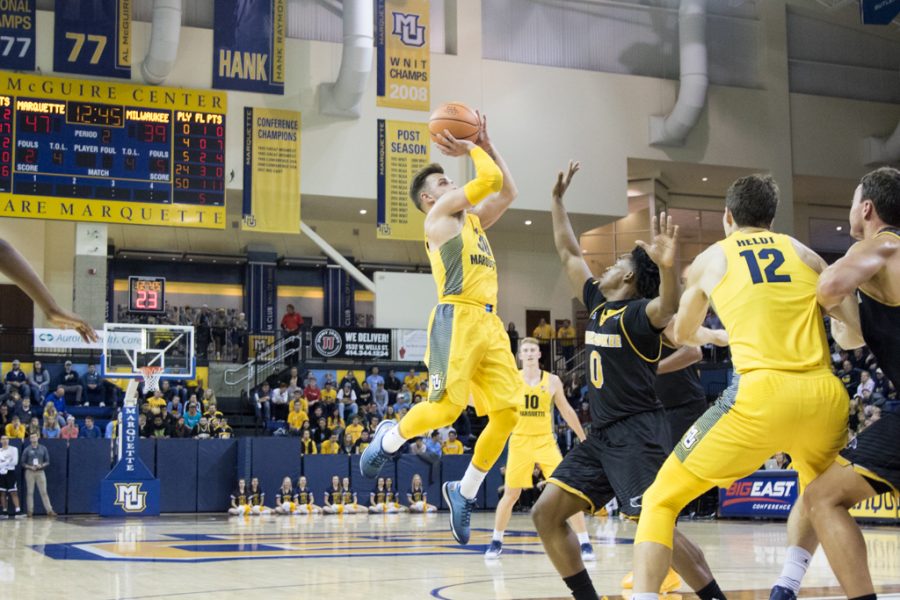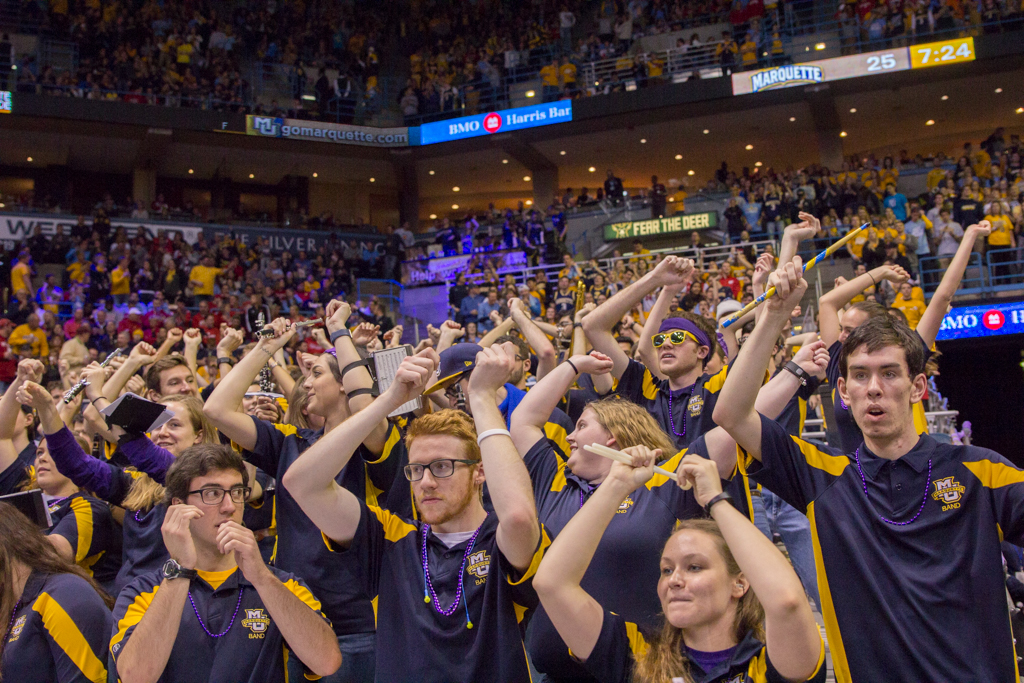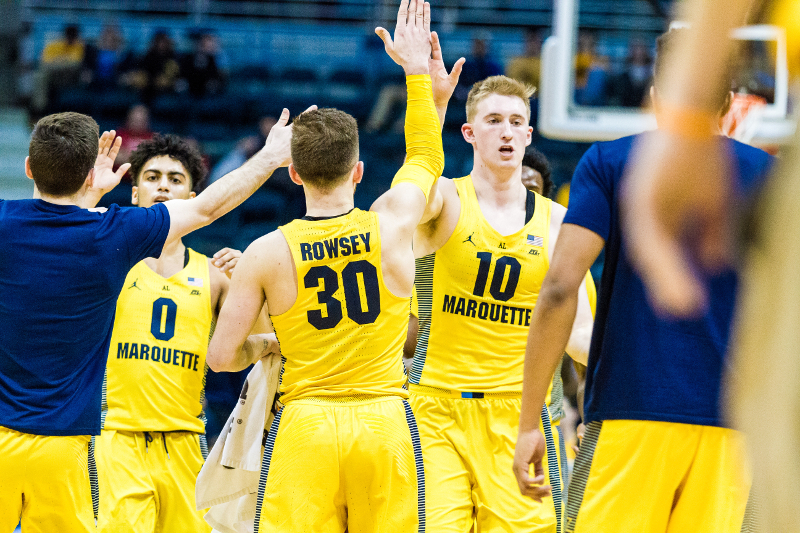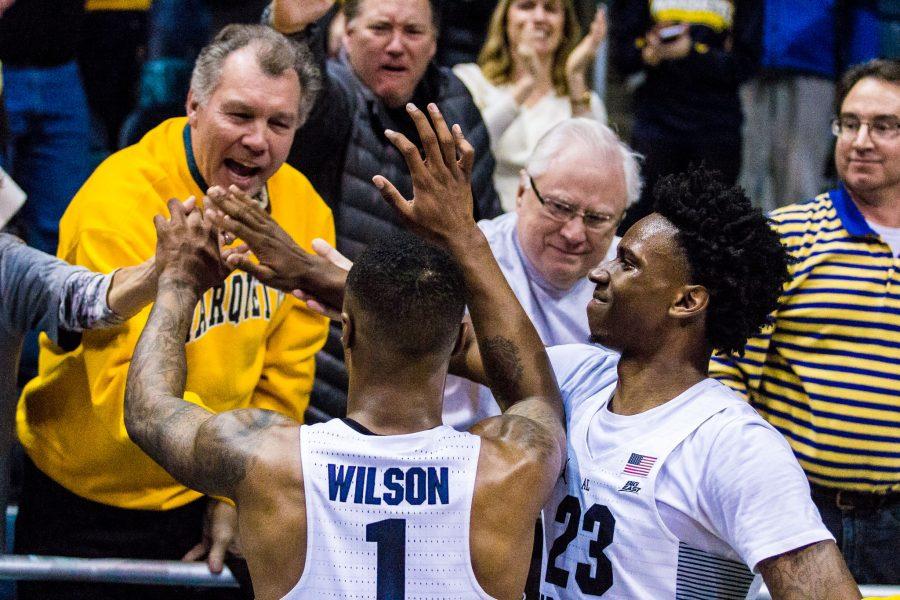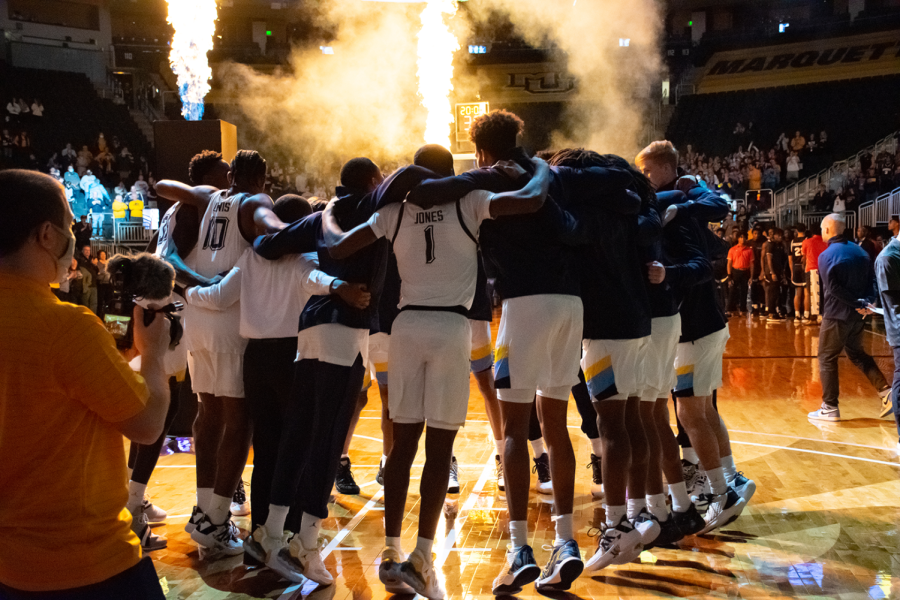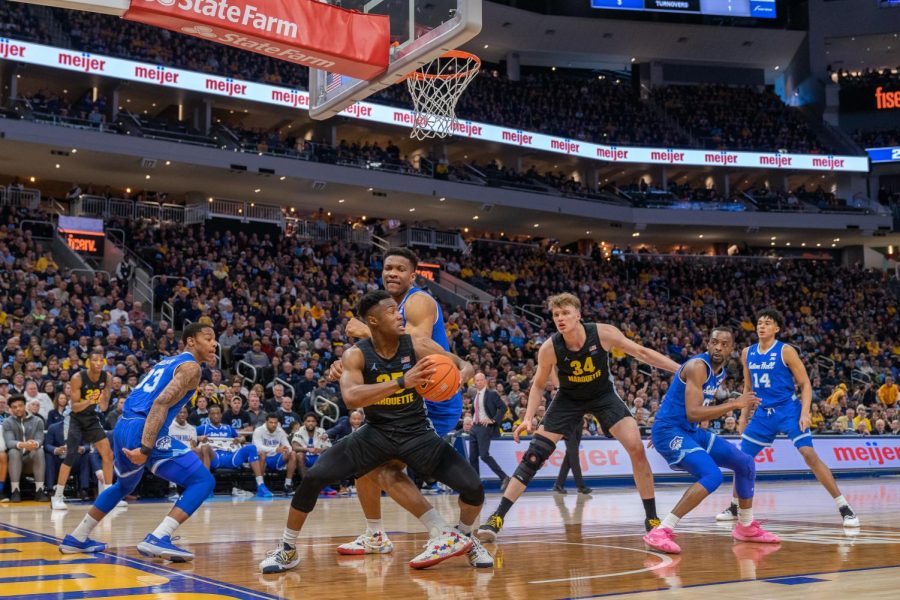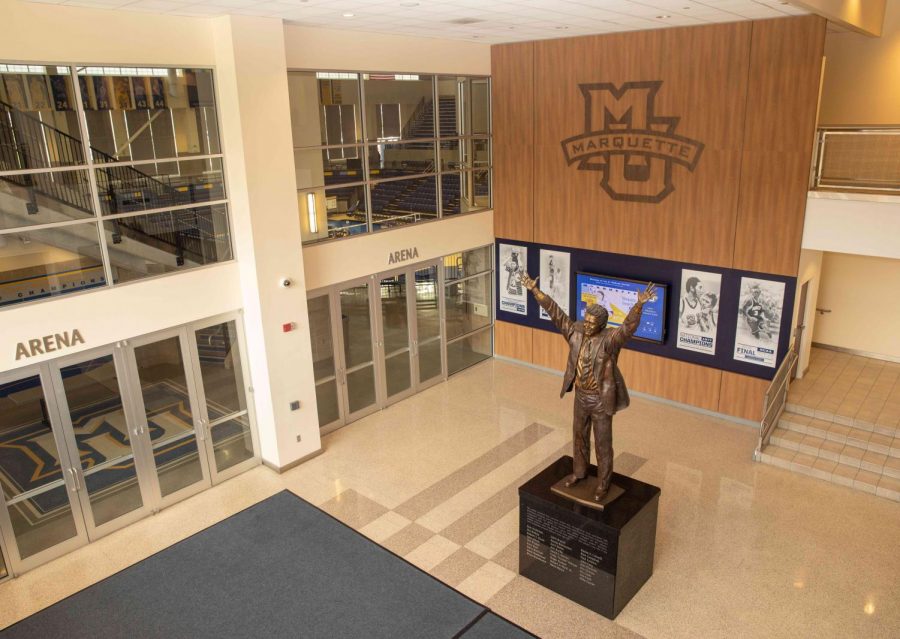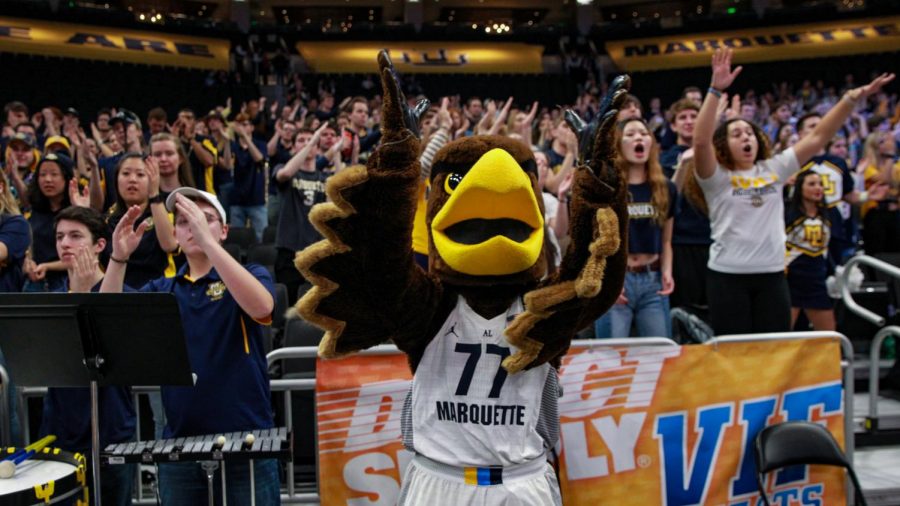It’s easy for Golden Eagle fans to remember the iconic moments of Marquette’s 74-72 upset over No. 1 Villanova last season. Duane Wilson’s stop-and-go layup, Katin Reinhardt’s game-tying three and Sam Hauser’s final rebound will all go down in program history.
It’s much harder to remember that if Villanova had made just one of its eight 3-pointers after the 6:09 mark of the second half, a point at which the Wildcats still led by 13, none of those plays would have mattered.
Villanova’s poor shooting streak, while little noted in the upset’s aftermath, is important to keep in mind. With 15 minutes left in the game, Marquette switched from its usual man-to-man defense into a 1-3-1 zone. Instead of each defender being responsible for one person on the opposing team, head coach Steve Wojciechowski chose to assign players to guard different parts of the court, a necessary change after the Wildcats shot 79 percent on 2-pointers at that point.
The shift eventually worked – Villanova shot 31.6 percent in the second half as opposed to 51.7 percent in the first – but it’s not because Marquette played better defense. On the contrary, the Wildcats had pretty much any shot they wanted from beyond the arc.
Nobody offered anything more than a feeble close-out on then-freshman Donte DiVincenzo during his shot attempt. The 1-3-1, which emphasizes constant defensive flow, is meant to mitigate drives to the basket at the expense of open 3-point looks. Against a team that moves the ball as well as Villanova does, a zone has to move in harmony or possess above-average length; otherwise, the ball will find an open shooter faster than the defense will.
That’s exactly what happened against Marquette.
As much as it seems unfair to use the word “lucky” when describing a 19-4 run against the defending national champions, asserting there wasn’t any luck involved in the “4” part of that spree flatly contradicts the film. Marquette head coach Steve Wojciechowski acknowledged this in his postgame press conference.
“To be fair, we … caught Villanova on a poor shooting night,” Wojo said after the 74-72 win. “Those are the types of things that are going to happen if you’re going to beat a team like that.”
Those eight missed 3-pointers are hardly the only way in which Marquette got lucky. The Wildcats also beat themselves by not allowing more time to run off the shot clock on those possessions. None of those treys came with less than 10 seconds left on the 30-second shot clock and four of the eight came with less than half the available time used.
Granted, Villanova still had a sizable lead during those first few possessions; there’s no way they could have known that missing a chance to burn extra time would be the difference between winning and losing. Five of the eight 3-pointers came after Marquette had cut the lead to six, though, and the Wildcats are renowned for consistently being one of the country’s smartest teams. Not taking more time on the later possessions was a dumb mistake that aided Marquette’s comeback.
If the Wildcats missing eight 3-pointers in a row was unlikely last year, it’s nearly impossible this year. Villanova has improved its 3-point shooting percentage from 36.9 percent in 2016-’17, good for 85th in the country, to 41.7 percent this year, sixth-best among all Division I schools. Villanova has only shot below 30 percent on 3-pointers once all season, which is a far cry from the 17.6 percent the Wildcats shot against Marquette last January.
Multiple players are responsible for this turnaround. Five of Villanova’s eight regularly-used players shoot better than 40 percent on deep balls. Even though the Wildcats won’t have senior Phil Booth for Sunday’s game, they’ll still have plenty of depth and supremely efficient ball movement to take advantage of its shooting prowess.
“Villanova presents a number of problems,” Wojo said Friday. “They shoot the three as well as anyone in the United States and they’re a tremendous driving team as well.”
Any added effectiveness that Sacar Anim, Greg Elliott or Jamal Cain’s length would bring to a potential zone defense is more than cancelled out by the Wildcats’ vastly improved shooting. Playing Villanova man-to-man is the only way for Marquette to consistently challenge the perimeter shooters.
When asked about whether or not he would employ a zone defense again, Wojo was quick to point out the potential hurdles in such a move. “They are a team that makes it difficult to zone because of the fact that all five guys are shooting the three well in conference,” Wojo said.
Last year, Wojo saw his defense getting taken to the rim at will by a squad of disciplined, aggressive players and figured that trading guaranteed twos for open threes was a prudent decision. That decision, far more than any other single factor, ended up winning Marquette the game.
A year later, even with a defense struggling just as much, that gamble isn’t worth taking again. Villanova won’t beat itself on offense this time; Marquette will have to outplay them.

